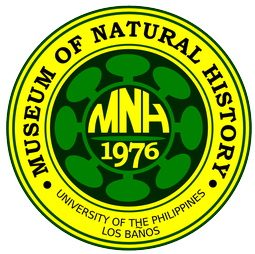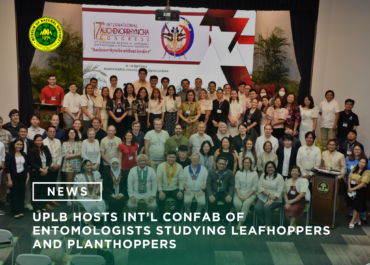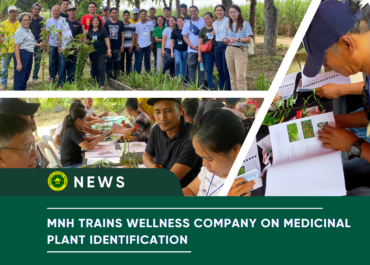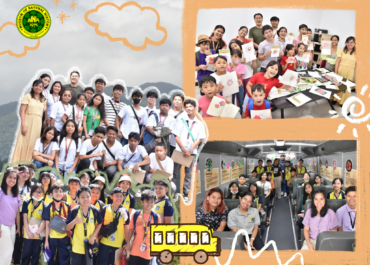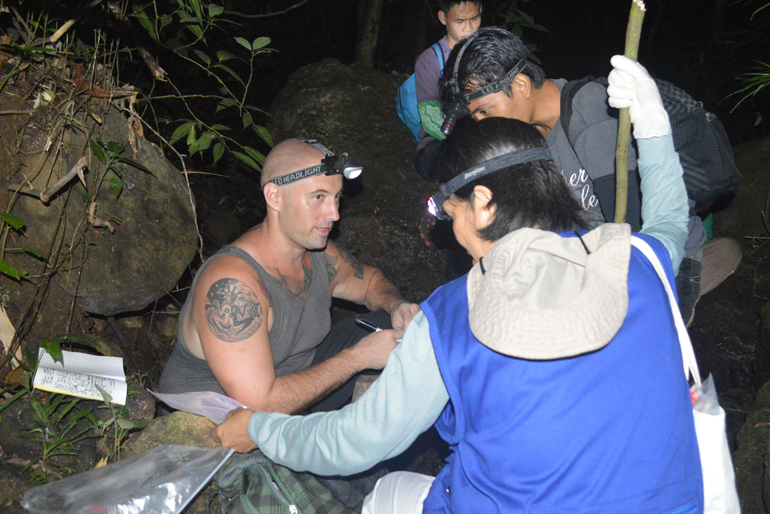
Norman Greenhawk, a 2021-2024 Fulbright Specialist and partner of the UPLB Museum of Natural History (MNH) on a pilot amphibian breeding initiative at the University of the Philippines Los Baños (UPLB), recently received a grant from the National Geographic Society.
Greenhawk’s grant from the NGS will enable him to do more research in order to conserve the Philippine endemic frog Platymantis insulatus of the Gigantes Islands as a 2021 National Geographic Explorer. By partnering with UPLB MNH curators Dr. Leticia Afuang, Dr. Juan Carlos Gonzalez, and Dr. Marian De Leon, Greenhawk hopes to establish Project Palaka Phase II, an ex-situ breeding population of Platymantis insulatus, the only IUCN Critically-Endangered amphibian species in the Philippines.
According to Greenhawk, Project Palaka Phase II will be the extension of a continuing conservation project which used analog species of amphibians from the Mt. Makiling Forest Reserve to demonstrate the feasibility of establishing an ex-situ amphibian breeding project on campus. It was the first ex-situ amphibian conservation project in the Philippines, and received support from the Avilon Wildlife Conservation Foundation, Inc. and the Philippine National Museum of Natural History.
“Historically, Platymantis insulatus, a habitat-specialist frog, has been found on just four of the Gigantes Islands in the Visayan Sea. However, investigations suggest that the range of this species has decreased, and it may now exist on just one or two islands,” Greenhawk shared.
Project Palaka will also be undertaking in-situ conservation actions, including population monitoring, habitat assessments, threat assessments, and educational outreach to local communities, both in Gigantes and Los Baños. The ex-situ portion of the project will be established in the UPLB MNH Hortorium and renovations to the facility are currently underway to prepare it for housing the frogs. Adult frogs will be collected and bred in captivity and their offspring will be taken back to the Gigantes islands and released into appropriate habitats.
“UPLB students will have the opportunity to assist with Project Palaka Phase II, and thus gain experience in both in-situ and ex-situ conservation methods for amphibians,” Greenhawk said.
According to Greenhawk, “their support has been essential in getting Project Palaka Phase II up and running, and the project has also received a Letter of Endorsement from the LGU of Carles, Iloilo, which has jurisdiction over the Gigantes Islands.”
Greenhawk is an internationally trained herpetologist and tropical forest ecologist, with vast working experiences in Puerto Rico and Belize. He earned his MS Environmental Sciences degree in 2019 from the University of Puerto Rico, Rio Piedras where he studied the impacts of increasingly frequent hurricanes on herpetofaunal assemblages in the Luquillo Experimental Forest. He obtained his BS Environmental Studies degree from Washington College, Maryland, USA in 2003 and is now a Research Scholar at the Center for Environment and Society at Washington College.
Search
Archives
Categories
- Announcement (21)
- Feature (21)
- News (141)
- Press Release (55)
- Research (4)
- Services (3)
